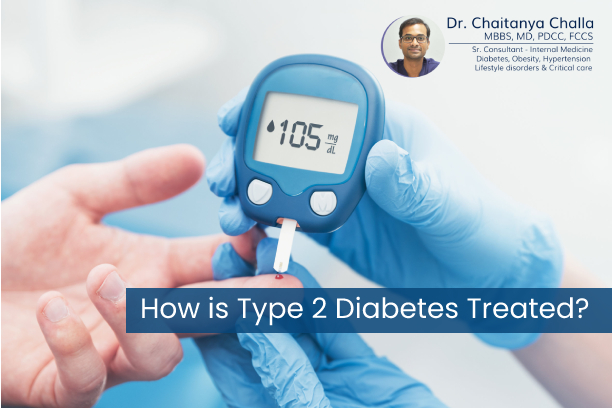
Type 2 Diabetes is an impairment in the way the body regulates and uses sugar (glucose) as a fuel. This long-term (chronic) condition results in too much sugar circulating in the bloodstream. Eventually, high blood sugar levels can lead to disorders of the circulatory, nervous and immune systems.
In type 2 diabetes, there are primarily 2 interrelated problems at work. Your pancreas does not produce enough insulin — a hormone that regulates the movement of sugar into your cells — and cells respond poorly to insulin and take in less sugar.
If you have type 2 diabetes, your doctor may prescribe treatments to help manage your blood sugar levels and reduce your risk of complications.
Weight loss: If you have type 2 diabetes, losing around 5% of your weight can have real benefits for your health. If you have obesity, you are more likely to put your diabetes into remission if you lose a larger amount of weight, as quickly and safely as possible following your diagnosis.
Changes in diet: Eating a wide variety of nutrient-dense foods can help you meet your body’s nutritional needs.
- Fruits and vegetables
- Legumes, such as beans and lentils
- Whole grains, such as whole wheat and brown rice
- Nuts and seeds, such as almonds and sunflower seeds
- lean sources of proteins, such as chicken
Physical exercise: Exercise can reduce the glucose in your blood. Muscles can use glucose without insulin when you’re exercising. In other words, it doesn’t matter if you’re insulin resistant or if you don’t have enough insulin: when you exercise, your muscles get the glucose they need, and in turn, your blood glucose level goes down.
Medication: If you have type 2 diabetes, your doctor may prescribe medication to help manage your blood sugar levels.
Blood sugar testing: If you have diabetes, self-testing your blood sugar (blood glucose) can be an important tool in managing your diabetes and preventing complications.
For Dr. Chaitanya challa (Diabetologist) appointment contact here.
Source from: shorturl.at/detx1






